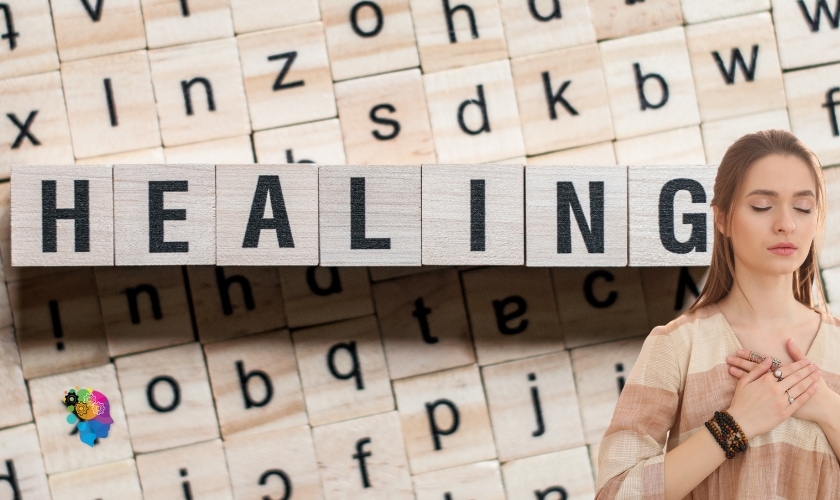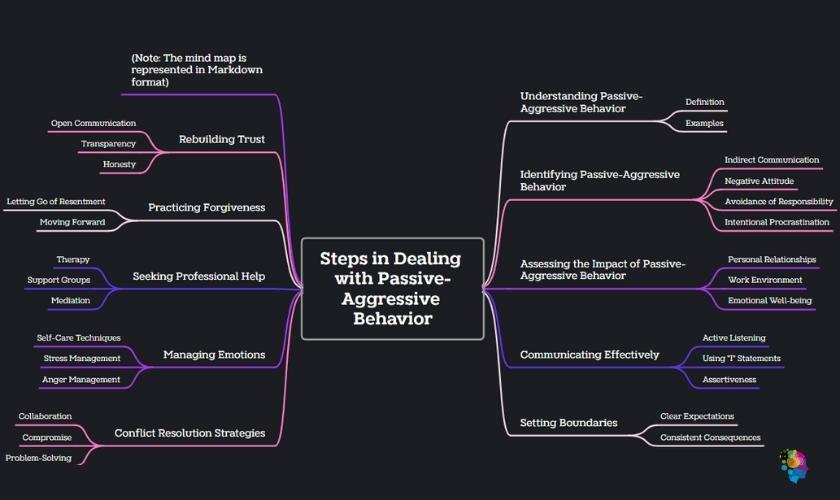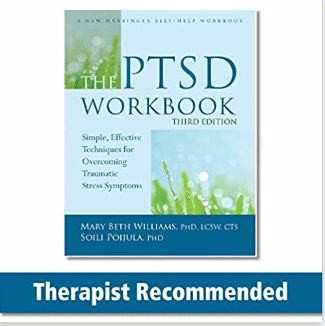Effects Of Narcissistic Abuse On The Brain
Understanding the effects of narcissistic abuse on the brain is crucial for those who have endured such trauma. Being around a narcissist, who often believes they are superior and demands constant respect, can be damaging not just emotionally, but also neurologically.
Narcissistic abuse, inflicted by someone with narcissistic tendencies, can lead to more than just hurt feelings; it can result in actual brain damage. Such abuse has the potential to alter brain functions and cause lasting harm. This article aims to delve into these effects and offer coping mechanisms for recovery.

What is the definition of narcissistic abuse?
Pubmed's study "Recognising Narcissistic Abuse and the Implications for Mental Health Nursing Practice" states that someone who holds very high standards for themselves and demands special attention from others brings on narcissistic abuse. They could be highly egotistical and indifferent to the needs or feelings of others.[1]
Physical, mental, or emotional abuse by narcissists is possible. Anything that makes someone uncomfortable or hurt can qualify.
Name-calling, pressuring someone into doing something they don't want to do, or even physically harming someone are some signs of an abusive partner. It's crucial to remember that, regardless of the circumstance, it is never acceptable for someone to abuse you.

The prevalence of narcissistic abuse
The following figures highlight the need for increased awareness and understanding of narcissistic personality disorder, particularly among these populations, as The Recovery Village explains. The prevalence of narcissistic personality disorder varies among different demographics. [2]It is estimated to occur in;
- 2-6% of individuals seeking help from mental health clinics
- 6% of forensic analysts
- 20% of military personnel
- 17% of first-year medical students.
Many believe it is a reasonably common abuse, especially in romantic partnerships. Any interaction, including friendships, families, and work partnerships, can experience narcissistic abuse.
It is crucial for those who have experienced narcissistic abuse to seek support and assistance to heal and rehabilitate since narcissistic abuse can lead to actual physical brain damage.
According to the National Intimate Partner and Sexual Violence Survey[3];
- 1 in 4 women (22.3%) are subjected to severe physical abuse
- 1 in 7 men (14.0%) report being severely physically abused by an intimate relationship.
- 15.2% of women out of 6 have experienced stalking in their lifetime.
- 1 in 19 males (5.7%) report having experienced stalking at some point in their lives. IPV, SV, and stalking victims suffer adverse and physical side effects.

How does narcissistic abuse affect the brain?
Abuse at the hands of narcissists can have negative and protracted repercussions on the brain. There is an exceptionally high correlation between narcissistic abuse and trauma.
According to Hack Spirit's article, Neuroscience: The shocking impact narcissistic abuse has on the brain, the brain of a victim of narcissistic abuse interprets the abuse as a danger to their safety and well-being. This may trigger the brain's "fight, flight, or freeze" response - a normal reaction to danger. The brain then releases cortisol and other stress hormones to aid the person in overcoming the perceived threat.[4]
The brain can be harmed by prolonged stress, such as that brought on by narcissistic abuse.
The hippocampus, a part of the brain involved in learning, memory, and emotion regulation, can shrink due to chronic stress. It causes alterations in brain structure and function. The likelihood of developing mental health conditions, including post-traumatic stress disorder (PTSD) and depression, can rise due to these brain changes.

The connection between narcissistic abuse & mental health problems
There is a connection between narcissistic abuse, the emergence of mental health problems, and the relationship between narcissistic abuse and trauma.
Chronic stress and trauma can alter the brain in ways that can result in the emergence of mental health conditions, including PTSD and depression. This cycle of abuse and mental health problems can be exacerbated by these mental health problems, which can also affect how the brain functions.
To address the effects of the abuse on their mental health and to stop this cycle, those who have experienced narcissistic abuse must seek treatment.

The long-term effects of narcissistic abuse
An individual's mental health and well-being may be adversely affected by the long-term effects of narcissistic abuse. Research Gate explains that experiencing a traumatic event, such as narcissistic abuse, will have victims exhibiting signs of;[5]
Increased chance of acquiring mental health issues such as PTSD and depression
Narcissistic abuse can be painful, and the experience of that consistent emotional trauma can lead to the emergence of symptoms similar to PTSD and depression. These ailments can be difficult to manage and negatively impact a person's quality of life.
Trust, attachment, and intimacy issues
Issues with intimacy, trust, and connection can result from narcissistic abuse, making a victim feel unsafe emotionally and physically. Because of this, it may be challenging for someone who has suffered from narcissistic abuse to build solid relationships or feel comfortable being vulnerable in front of others. As a result, a person's social and emotional health could suffer.
Cognitive dysfunction and poor decision-making
Cognitive functions are the mental operations that allow us to think, learn, and remember. Decision-making is the capacity to choose and make decisions. The consequences of narcissistic abuse on the brain can affect these abilities, making it difficult for a person to think clearly and make good decisions. As a result, a person's ability to complete daily duties may remain the same.
Difficulty managing emotions
Narcissistic abuse can make a person feel various feelings, such as fear, guilt, shame, and grief. These strong feelings might be challenging to control, and one could have trouble regulating them.
Flashbacks of the traumatic events
Narcissistic abuse might bring on flashbacks of the traumatic event. These flashbacks can be incredibly vivid and lifelike, giving the impression that the horrific incident is currently occurring.
Feelings of sadness, hopelessness, and a lack of interest in routinely enjoyable activities
Sadness, helplessness, and a lack of interest in often festive activities are depression symptoms that may develop over time due to narcissistic abuse of the brain.
Chronic stress and trauma can alter the brain in ways that can result in the emergence of mental health conditions
The hippocampus may atrophy due to the consistent emotional trauma caused by narcissistic abuse, and other brain structure and function changes may also occur. These changes may pave the way for the onset of mental health illnesses, including PTSD and depression.
Difficulty establishing solid connections
A narcissistic abuser can make a person feel physically and emotionally uncomfortable. This might make it challenging for someone who has suffered from narcissistic abuse to build strong relationships with others. Establishing and keeping healthy relationships with them may be difficult since they may feel uneasy and untrustworthy.
Social and emotional health may suffer
Abuse of the selfish kind can hurt a person's social and mental well-being. A person may find it challenging to interact with others, partake in social activities, and develop lasting relationships due to the trauma and stress brought on by the abuse. This may make it difficult to sustain good connections and cause feelings of loneliness and isolation.
The abuse may impact the capacity to carry out daily tasks
Narcissistic abuse can impair one's concentration and clear thinking, making it challenging to do daily chores. Additionally, it may lead to cognitive dysfunction and lousy decision-making, making it difficult for a person to organize, plan, and carry out everyday tasks.
Increased tendency to avoid triggers
Narcissistic abuse can lead to the development of triggers or stimuli that bring up terrible memories in the victim's mind. People with PTSD may avoid particular situations, people, or activities that bring up their horrific experiences. They may find it challenging to participate in specific actions, affecting their quality of life.
Panic attacks, and chronic anxiety
Because narcissistic abuse makes a person feel uneasy, afraid, and on edge all the time, it can lead to panic. The victim of narcissistic abuse may experience confusion, loneliness, and persistent doubting of their reality due to manipulation, gaslighting, and verbal abuse.
This pervasive feeling of emotional and psychological distress might result in an elevated level of anxiety that can bring on panic attacks. It would help if you addressed the long-term repercussions of narcissistic abuse on the brain, and those who have suffered them should seek therapy to learn coping mechanisms.[6]

Recovering from long-term narcissistic abuse
It's critical to get support if you or someone you know has endured narcissistic abuse to deal with the repercussions on the brain and start the healing process. Very Well Mind's blog, Stages of Healing After Narcissistic Abuse, suggests the following is among the most crucial things you can do[7];
Support groups
Becoming a support group member can offer a secure and encouraging setting where people can connect with others who have gone through comparable situations. Support groups can be an effective aid in the recovery process by fostering a sense of belonging and validation.
Self-care
Self-care involves caring for one's physical, emotional, and mental well-being. This can include working out, meditating, practicing yoga, keeping a journal, and spending time in nature.
Setting boundaries
Setting boundaries is essential for people who have experienced abuse in a relationship. It's crucial to learn how to say "no" to additional abuse and create boundaries with the abuser.
Safety planning
A safety plan is crucial for people who have experienced abuse in a relationship. This can involve making a list of secure locations to go to, virtual phone numbers, and a strategy for getting out of an abusive situation.
Medications
Drugs can effectively address some signs and symptoms of misuse, such as anxiety and depression. Before ingesting any medicine, get medical advice.
Seek Legal Help
If you are being abused, you should take legal action. Getting legal assistance can aid with custody, divorce, and restraining orders.
Seek Professional Help
Getting professional assistance might help you comprehend and view the situation differently. You can start to understand the complexities of the abuse and begin to process the trauma with the aid of a therapist, counselor, or counselor.
Journaling
Journaling can be a powerful emotional freedom technique for recovering from trauma. It can offer people a private and secure forum for expressing their feelings. Writing about one's experiences might be a method to process them and release bottled-up emotions, as explained by the APA's study, Writing to heal.
Additionally, keeping a journal can help one keep track of their development and gauge how far along they are in the healing process.[8] And for daughters who's suffered under a narcissistic mother, we suggest reading The Best Books On Healing From Narcissistic Mothers For Daughters.
Meditation
Using meditation to assist in managing the effects of abuse can be very beneficial. It can encourage quiet and inner serenity while helping in reducing stress and anxiety. According to Medical News Today, meditation allows you to focus the mind and develop emotional management abilities.[9]
Bodybuilding
Bodybuilding or physical exercise can be a great way to help individuals heal from abuse. Regular exercise can help to reduce stress and anxiety and can promote feelings of well-being.
It can also provide a sense of empowerment and control, which can be especially beneficial for those in a controlling and abusive relationship, as stated in IOI's blog "Rape victim muscles up, opens gym for abused women." Additionally, bodybuilding can help individuals feel stronger and more confident in themselves, which can be an essential step in the healing process.[10]
It's crucial to remember that recovering from narcissistic abuse requires time, and it's acceptable to move at your own pace. Asking for assistance when you need it is also good. Resources are available to help you on your path to recovery and healing.
Conclusion
The effects of narcissistic abuse are both mental and physical. As we now know, narcissistic abuse can cause brain damage. This is due to the stress on the victim's body and the cognitive dissonance caused by gaslighting.
Narcissistic abuse is a form of domestic violence and should be taken seriously. If you or someone you know is in an abusive relationship, please seek help from a professional and call 1-800-799-SAFE (7233) (the national domestic violence hotline).
FAQ
Can narcissistic abuse cause brain damage?
People who have been subjected to narcissistic abuse may develop changes in their hippocampus, which controls memory, emotion regulation, and stress response. Additionally, this kind of abuse can cause chronic stress and inflammation, which can harm other parts of the brain including the prefrontal cortex, which is in charge of making decisions, and the amygdala, which is in charge of processing emotions.
How does narcissistic abuse affect the development of the brain?
It is true that narcissistic abuse can cause PTSD and despair. Narcissistic abuse can set off the body's fight or flight reaction and result in PTSD symptoms like nightmares, anxiety, and flashbacks. Additionally, it influences how the brain processes emotions, which may result in depression.
References
- Pubmed: Recognising Narcissistic Abuse and the Implications
- therecoveryvillage: Narcissistic Personality Disorder Statistics
- National Data on Intimate Partner Violence, Sexual Violence, and Stalking
- hackspirit: The shocking impact narcissistic abuse has on the brain
- researchgate: The Effects of Emotional Abuse and Neglect in Adulthood
- researchgate: The Effects of Emotional Abuse and Neglect in Adulthood
- Very Well Mind: Stages of Healing After Narcissistic Abuse
- APA: Writing to heal
- Medical News Today: Mindfulness meditation helps to control emotions, says study
- IOI: Rape victim muscles up, opens gym for abused women




































